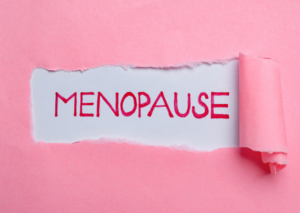As you approach menopause, your body goes through a series of significant changes. However, one of the most profound impacts of menopause is on your mental health. You may find yourself facing depression, anxiety, exhaustion, heightened emotions, anger, and even memory loss.
These changes are due to the hormonal shifts that occur during menopause. Your body begins to produce less estrogen and progesterone, leading to a variety of physical and emotional changes. The decline in these hormones can affect your mood and overall mental health, making it important to understand how menopause can impact your life and what you can do to manage the symptoms.

Depression and Menopause
One of the most common mental health issues you might experience during menopause is depression. The decrease in estrogen can disrupt the balance of neurotransmitters in your brain, leading to feelings of sadness or hopelessness. You might also find yourself experiencing a loss of interest in activities you once enjoyed.
Depression can be especially challenging because it can make it difficult for you to engage in self-care or seek help. However, it’s important to recognize the signs and seek support from a healthcare professional if needed.
Anxiety and Menopause
Anxiety is another common symptom during menopause. You may feel an increased sense of worry or unease about various aspects of your life. The hormonal fluctuations can exacerbate existing anxiety or trigger new episodes. This can lead to a constant feeling of being on edge, making it challenging to relax and enjoy life.
Exhaustion and Menopause
Fatigue is a common symptom during menopause due to changes in your sleep patterns and hormonal levels. Night sweats and hot flashes can disrupt your sleep, leaving you feeling tired and worn out during the day. This exhaustion can make it difficult for you to stay focused and productive.
Heightened Emotions and Menopause
You might find yourself experiencing a rollercoaster of emotions during menopause. The decline in estrogen can lead to mood swings and increased sensitivity to situations that might not have bothered you before. You may also find yourself crying more easily or feeling irritable without a clear reason.
Anger and Menopause
Irritability and anger are common during menopause, as hormonal changes can affect your mood. You may find yourself becoming angry or frustrated more easily, even at small things that wouldn’t normally bother you.
Memory Loss and Menopause
Another common symptom of menopause is memory loss or difficulty concentrating. This can be frustrating, especially if you find yourself forgetting important tasks or struggling to recall information. The decline in estrogen can impact your cognitive function, leading to these changes.

Moving Forward
Menopause can have a profound effect on your mental health and overall well-being. While these symptoms can be challenging, there are steps you can take to manage them. Seeking support from healthcare professionals, friends, and family can help you navigate this transitional period more effectively.
Remember, you are not alone in this journey. Many women experience similar challenges during menopause, and there are resources available to help you cope with the mental health effects.
In the following seven-part series, we will explore each of these topics in more detail, providing tips and strategies for managing and even overcoming the struggles associated with menopause.
Stay tuned for the next installment in this series, where we will delve deeper into the relationship between menopause and depression, offering insights and practical tips to help you maintain your mental health during this time.




